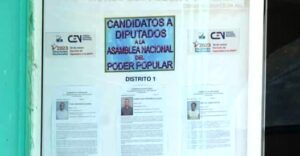Cuba celebrates today the International Day against Drug Abuse and Illicit Trafficking by ratifying its policy of zero tolerance to this scourge and promotes education to prevent drug use.
The Caribbean nation is a signatory to the main multilateral legal instruments on the subject, approved by the United Nations, and has signed more than 10 extradition treaties with other countries, around 30 legal assistance treaties and an equal number of treaties on the transfer of prisoners and more than 40 on drugs.
According to recent statements made by the head of the Interior Ministry’s specialised anti-drugs body, Colonel Juan Carlos Poey, on the national television programme Hacemos Cuba, although this Caribbean nation is not a producer of these substances, its geographical location places it at an intermediate point between the countries of origin of drug trafficking (to the south) and the largest consumer (the United States, to the north).
Poey affirmed that as a result of operations against drug traffickers on the high seas, shipments of drugs are often launched which, dragged by sea currents, reach the Cuban coast, mainly to the north of the provinces of Guantánamo, Holguín, Las Tunas, Camagüey and the northern cay of Ciego de Ávila, in the east of the country.
He noted that Cubans living abroad have attempted to smuggle drugs by sea and air and reported that three such operations were intercepted in 2023.
On 7 December 1987, the United Nations General Assembly established 26 June as the International Day against Drug Abuse and Illicit Trafficking to show its determination to strengthen global action and cooperation to achieve a society free of drug use.
The celebration aims to raise awareness of the serious problem that illicit drugs represent for society.
This year’s 2024 International Day Against Drugs campaign emphasises that effective policies on illicit substances must be based on science, research, full respect for human rights, compassion and a deep understanding of the social, economic and health implications of drug use, the UN said on its website.
The international body also warned of the serious problem that illicit drugs represent for society, especially in Latin America and the Caribbean, where all the cocaine consumed globally originates.
Large-scale production of cannabis, methamphetamines and heroin for transnational trafficking is reported in some countries in the region, the United Nations (UN) said.
Hence the need to adopt an approach focused on prevention and timely medical care for addiction sufferers, it warned.




